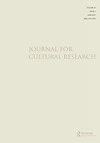伟大战争的梦想
IF 0.6
Q1 CULTURAL STUDIES
引用次数: 0
摘要
摘要本文探讨了一种观点,即塞缪尔·海恩斯所描述的“(伟大)战争的神话”既可以作为创伤叙事来分析,也可以作为文化梦想来分析。该论点借鉴了拉康在第十七次研讨会上的主张,即俄狄浦斯情结是“弗洛伊德的梦”,这是拉康在他的四种话语理论的背景下发展起来的一个想法。正如拉康在研讨会上所说的“弗洛伊德之梦”是试图“拯救父亲”免受象征性阉割一样,本文提出的论点是,《大战神话》是试图“挽救”维多利亚晚期和爱德华早期英国的中上层文化免受其自身形式的象征性阉割。作为一种创伤叙事,它可以被视为试图赋予一种无意义的体验以意义,但作为一个梦,它可以在其“明显的内容”中识别弗洛伊德所说的“梦的肚脐”,即解释达到极限的点,用拉康语来说,这可以被定义为梦的真实。这可以通过分析威尔弗雷德·欧文的一首著名的大战诗来说明。本文章由计算机程序翻译,如有差异,请以英文原文为准。
The dream of the Great War
ABSTRACT This article explores the idea that what Samuel Hynes has described as ‘The Myth of the (Great) War can be analysed both as a trauma narrative and as a cultural dream. The argument draws upon Lacan’s proposition in Seminar XVII that the Oedipus complex is ‘Freud’s dream’, an idea which Lacan develops within the context of his theory of the four discourses. Just as Lacan argues in the Seminar that ‘Freud’s dream’ is an attempt to ‘save the father’ from symbolic castration, the argument put forward in this paper is that the Myth of the Great War is an attempt to ‘save’ the upper and upper-middle class culture of late Victorian and early Edwardian England from its own form of symbolic castration. As a trauma narrative it can be seen as an attempt to give meaning to a meaningless experience, but as a dream it becomes possible to identify, within its ‘manifest content’, what Freud called the ‘navel of the dream’, the point where interpretation reaches its limit and which in Lacanian terms can be defined as the Real of the dream. This is illustrated through the analysis of a famous Great War poem by Wilfred Owen.
求助全文
通过发布文献求助,成功后即可免费获取论文全文。
去求助
来源期刊

Journal for Cultural Research
CULTURAL STUDIES-
CiteScore
1.40
自引率
0.00%
发文量
23
期刊介绍:
JouJournal for Cultural Research is an international journal, based in Lancaster University"s Institute for Cultural Research. It is interested in essays concerned with the conjuncture between culture and the many domains and practices in relation to which it is usually defined, including, for example, media, politics, technology, economics, society, art and the sacred. Culture is no longer, if it ever was, singular. It denotes a shifting multiplicity of signifying practices and value systems that provide a potentially infinite resource of academic critique, investigation and ethnographic or market research into cultural difference, cultural autonomy, cultural emancipation and the cultural aspects of power.
 求助内容:
求助内容: 应助结果提醒方式:
应助结果提醒方式:


